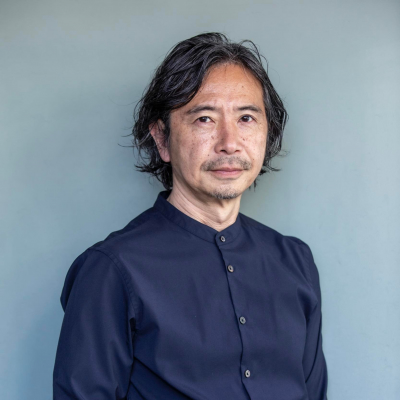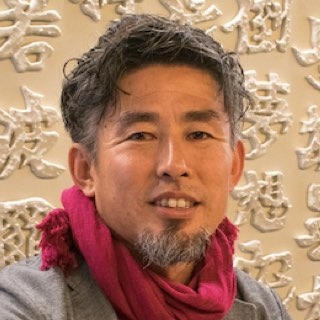
COLUMN
Search by keyword
- All
- Ryotei & Restaurants
- Lodging/Hotels
- Producers
- Technology
- DX (Digital) & SNS
- City Planning
- Utilization
- Gastronomy and Culinary
- Japanese Nature
- Japanese history and traditional culture
- Japanese Food Culture
- Agriculture
- Fisheries
- SDGs
- Local production for local consumption
- Foreigner Activation
- Experience
- Overseas Expansion
- Fermentation
- Public-private partnerships and collaborations
- Sake
- Community Revitalization
- Spirituality
- Japan of the Sea
- Mountain Japan
VIEW ALL
-
Read more

15 A “Delicious” Economy to Change the Future of Society—Living in a Country with the Best Food in the World
Japan can perhaps be called the country with the best food in the world. In a global survey asking which countries people most want to visit after the pandemic, Japan was number one among people living in Asia and number two among those in Europe and the US. In both cases, Japan was at the top end of the list. Moreover, the number one reason people wish to visit Japan is said to be for its food. As this suggests, while many foreign visitors to Japan come in search of delicious food, Japan in fact has the highest number of Michelin-starred restaurants in the world. The total number of stars and three-star restaurants in Tokyo far exceeds that of Paris, which can be called the home of Michelin star framework. A characteristic of the restaurant industry in Japan is that many Japanese chefs have honed their skills not only in Japanese cuisine, but also in French, Italian, and other foreign cuisines, and have earned Michelin stars. Further, outside of Michelin stars, there are countless numbers of Japanese chefs who have won first place in international cooking competitions such as the Pasta World Championships and the World Pizza Championships. We can therefore say that Japan is the country that evolves tastes of other countries in more delicious way. Elsewhere, Japan has an abundance of delicious, seasonal foods from both the sea and the mountains. Thanks to an excellent supply chain, customers can consume these ingredients while they are still fresh. Meanwhile, advanced fermentation techniques developed in the preserved food culture have broadened the range of umami flavors. There are many positive aspects of Japanese food, such as the diversity of food culture, which varies from region to region, including traditional and local cuisine, and the high level of “seasoning technology” in factories producing seasonings and processed foods. Alongside its “deliciousness” technology, Japanese food is also highly regarded worldwide for its health benefits and for its lower environmental impact compared to Western food. In 2005, the number of Japanese restaurants overseas stood at approximately 25,000. In 2010 this number doubled to 50,000, and expanded to 150,000 in 2020. With such wonderful characteristics, it is essential that we seriously address how to maintain and develop our globally respected food culture. Doing so can help Japanese food culture maintain its dominance over the centuries. In a future of exploding world population, food will become […]
-
Read more

14 Food and Food Culture are Key to Environmental Solutions
Today we face various global issues, such as global warming due to human activities, loss of biodiversity, nitrogen pollution, and COVID-19. From Japan, it might seem like some of these are irrelevant matters in a faraway world. However, with products and information travel all across the globe in the blink of an eye, the world has gotten smaller. Things that have been pushed off as a hassle sometimes come back full circle. Japan procures food, animal feed, raw materials, and fuel from various countries worldwide, and bears a great deal of responsibility for future possibilities. That is, if Japan gets serious about solving these global issues, it can make the world better connected through trade. This is perhaps the very purpose of Cool Japan. Moving on, some of you may be unfamiliar with nitrogen pollution. Nitrogen is an essential element for proteins, nucleic acids, and other biomolecules. Humans absorb nitrogen from food proteins. Nitrogen (N2) is ubiquitous, and accounts for around 80% of the Earth’s atmosphere. However, N2 is incredibly stable and cannot do much by itself. Only when it is transformed into a reactive compound such as ammonia can it be used as a fertilizer for crop production, a raw material for industrial production, and a fuel for energy production. Technology for the artificial synthesis of ammonia was put to practical use in the early 20th century, and since then nitrogen has brought great benefits to us as a fertilizer for mass food production. That said, much of the nitrogen we use is released into the atmosphere in a reactive state. This in turn leads to a wide range of environmental problems such as global warming, stratospheric ozone depletion, air pollution, water pollution, eutrophication, and acidification. These combined environmental impacts are known as nitrogen pollution. Our world is huge but finite. Including ourselves, there are many different living things in the world, and we all influence and impact each other. Human activities have become so large that they have drastically changed the material cycle and in turn caused various environmental problems. In doing so, we have made the world more difficult for other organisms to survive. There are many things we can do to ensure that future generations can live in happiness, and to ensure that the world’s living things can remain as they are. Food is one element of our daily lives that is closely linked to global […]
-
Read more

13 Pointers for Circular Economies from Satoyama Culture
More than ten years have passed since COP10 was held in Nagoya and the world was introduced to the concept of satoyama—a unique environment where people and nature coexist in harmony— and the concept seems to be gradually taking root. Elsewhere, the impacts of climate change are becoming more apparent worldwide, and the COVID-19 pandemic has demonstrated the need for society to take a new direction. While the definition of circular economy seems to vary to region, the main concept is that—in contrast to a linear economy (use and dispose) and even reuse—a system where used products and materials disposed in the production process are reproduced into new products, given new value, and then sold again. In many rural regions of Japan, where the satoyama wisdom has been passed down from generations to generations, this circular approach is a core of people’s lives and continues to this day. With rice, for example, the ingredient in Japanese sake and sushi, both of which are becoming increasing popular worldwide, an incredibly efficient cycle has been in place for generations. It is a well-known fact that sake lees, a byproduct of sake brewing, are used to make amazake (a sweet, non-alcoholic sake) and a wide range of pickles including Narazuke. Meanwhile, in the production of daiginjo and other types of sake with high rice polishing ratio, a large amount of rice flour is generated as a byproduct. This rice flour is reused in rice crackers and dumplings. Rice bran is another byproduct of the production process, and in the Hida area of Japan where I live, this has been reused as a kind of wax for polishing the floors and pillars of wooden houses for many years. Further, after the rice bran has been used to care for the home, it is then scattered onto nearby fields, returned to the soil, and reused as fertilizer for new crops. Examples such as these are too numerous to see throughout satoyama areas. Another example can be seen in the use of the kaya grasses used to make thatched roofs, such as those in the UNESCO World Heritage site of Shirakawa-go. Harvested grass is used as snow shelters in the drying process, and then used for thatched roofs after drying. Later, part of the roof that have been damaged by wind and rain is removed and reused as livestock feed. This is then digested by the […]
-
Read more

9 Education & Geo-gastronomy
“Let’s think about ways to minimize food mileage,” “If we can reduce meat consumption by promoting vegan foods, we can cut CO2 emissions,” and “I wonder if there are any local foods that have gone unnoticed…”—These are some of the remarks from a class of sixth grade students at the Keio Yochisha Elementary School. The classroom discussion among these sixth grade students is gaining momentum as they seek to widely communicate their ideas to society. In November 2021, one class from the sixth grade at Keio Yochisha Elementary School participated in the Islander Summit Ishigaki, giving an online presentation on the theme “Food of the Future.” For me, developing ambitions and ideas to transform society for the better is an important part of education. As such, using my position as a teacher, I have sought to shine a light on the relationship between the environment and food—something which children will be familiar with—and set up the following activities on the “Food of the Future” theme. October – A lesson from Kenichi Watanabe, representative at Geo Gastronomy, introducing a whole range of food-related issues and advanced case studies. – An online lecture and interaction with Tomoko Kitamura Nielsen, environmental director on the Danish island Lolland, talking about food-related environmental awareness in Denmark and advanced case studies. – An online lecture and interaction with Hitoshi Sugiura, winner of the gold prize at the World Vegan Cooking Contest, about the environmental impact of food and vegan cuisine. – Use of official World Food Forum videos as teaching materials to further understanding of the diversity, cyclicity, and sustainability of food. November – Presentation at the Islander Summit and comments from experts. – Online lecture and interaction with Prof. Seiko Shirasaka from the Graduate School of System Design and Management at Keio University about advanced space utilization and environmental issues from a space perspective. Something that every child around the world does every day is sit down for a meal. Helping children understand the relationship between food and the environment can help them realize the close link between themselves and society’s problems. In the lesson from Kenichi Watanabe, children were surprised to learn about the katemono (edible wild plants) recipes that were made to overcome hunger in the Yonezawa domain during the Edo period. Some children suggested that if we had a modern-day version of these katemono recipes, we might be able to help countries […]
-
Read more

3 Japan’s Coexistence with Nature and Expectations for the Future of Food Culture in Society
The Ise Jingu Shrine hosts approximately 1,500 festivals and rituals each year, but perhaps the most important one is the Kannamesai festival, which is a symbol of Japan’s rice culture. Among these annual festivals, the Shikinen Sengu ritual is said to be the shrine’s most solemn ceremony, that the shrine’s deity (the sun goddess Amaterasu) is transferred to a new shrine building every twenty years. This In the Man’yoshu book of poems and other classical texts, the Ise Jingu Shrine is so called as Kamukaze no Ise, or Ise of divine winds. “Divine winds” brings to mind a gentle climate, natural features, and sufficient amount of rain for abundant harvests. I believe it is the ideal representation of Ise. Moreover, according to the Nihon Shoki, or Chronicles of Japan, during the reign of Emperor Suinin, Amaterasu said to Yamatohime-no-mikoto, “This Ise of divine winds is a province where the waves of heaven continuously reach the shore.” Amaterasu is a symbol of the sun, and her words imply the sun, the wind and the waves nurtured the nature of Ise, and show how the sacred city exists as one with nature. Food, clothing, and shelter are essential for humans These three elements are also an essential part of the Shikinen Sengu, which was first conducted around 1,300 years ago. Here I would like to focus on the food that have been offered forshrine deities throughout the shrine’s long history. Today, global environmental consideration are growing and the increase in greenhouse gas emissions and the disposal of leftover food are frequently broadcasted on news. I believe that the food culture at Ise Jingu Shrine could contribute to the future of global society. According to a record from 804 (Enryaku 23) of the ceremonies held at the Kotai Jingu Shrine, which is the inner shrine at Ise, at the Tsukinamisai festival held on June 15, local peasants from Shima province offered abalone and turban shells to the deities. Meanwhile, in chapter 4 of the Engishiki (Procedures of the Engi Era; completed 927 (Engi 5)) , which is about ceremonies at the Ise Jingu Shrine, offerings at three important shrine festivals were said to be dried foods, sea slugs, skipjack tuna, seaweed, salt, and oil. In the medieval text Jinposho—a list of districts within the Ise Jingu Shrine —we can see that, including from 14 districts in Ise province, the inner and outer shrines […]

